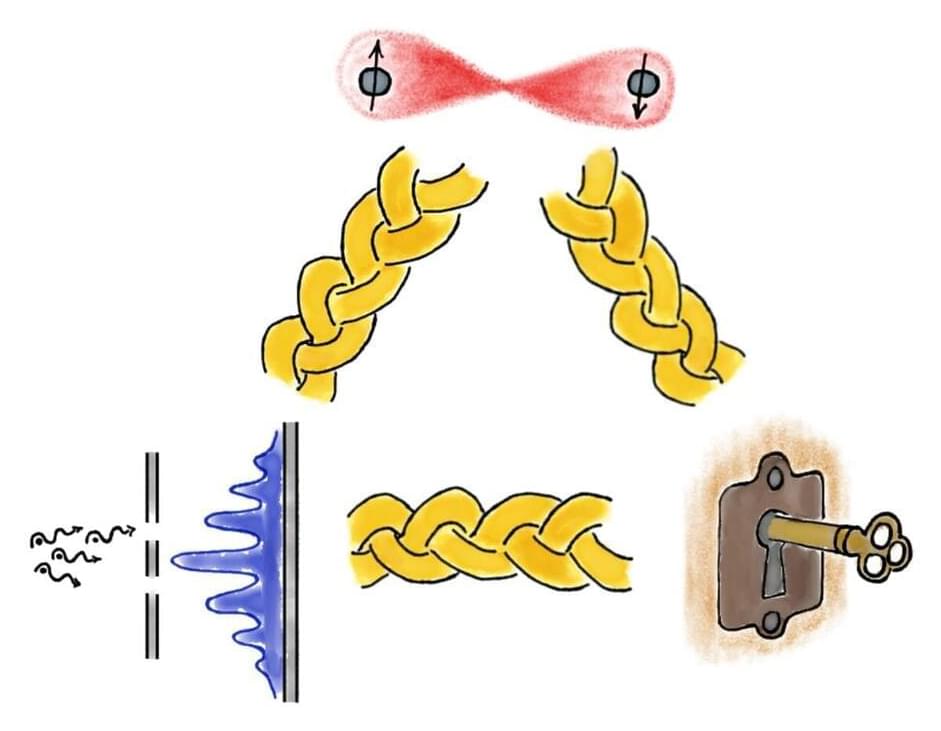The physics of the microrealm involves two famous and bizarre concepts: The first is that prior to observation, it is impossible to know with certainty the outcome of a measurement on a particle; rather the particle exists in a “superposition” encompassing multiple mutually exclusive states. So a particle can be in two or more places at the same time, and you can only calculate the probability of finding it in a certain location when you look. The second involves “entanglement,” the spooky link that can unite two objects, no matter how far they are separated. Both superposition and entanglement are described mathematically by quantum theory. But many physicists believe that the ultimate theory of reality may lie beyond quantum theory. Now, a team of physicists and mathematicians has discovered a new connection between these two weird properties that does not assume that quantum theory is correct. Their study appears in Physical Review Letters.
“We were really excited to find this new connection that goes beyond quantum theory because the connection will be valid even for more exotic theories that are yet to be discovered,” says Ludovico Lami, a member of the physics think-tank, the Foundational Questions Institute, FQXi, and a physicist at the University of Ulm, in Germany. “This is also important because it is independent of the mathematical formalism of quantum theory and uses only notions with an immediate operational interpretation,” he adds. Lami co-authored the study with Guillaume Aubrun of Claude Bernard University Lyon 1, in France, Carlos Palazuelos, of the Complutense University of Madrid, in Spain, and Martin Plávala, of Siegen University, in Germany.
While quantum theory has proven to be supremely successful since its development a century ago, physicists have struggled to unify it with gravity to create one overarching “theory of everything.” This suggests that quantum theory may not be the final word on describing reality, inspiring physicists to hunt for a more fundamental framework. But any such ultimate theory must still incorporate superposition, entanglement, and the probabilistic nature of reality, since these features have been confirmed time and again in lab tests. The interpretation of these experiments does not depend on quantum theory being correct, notes Lami.










Comments are closed.